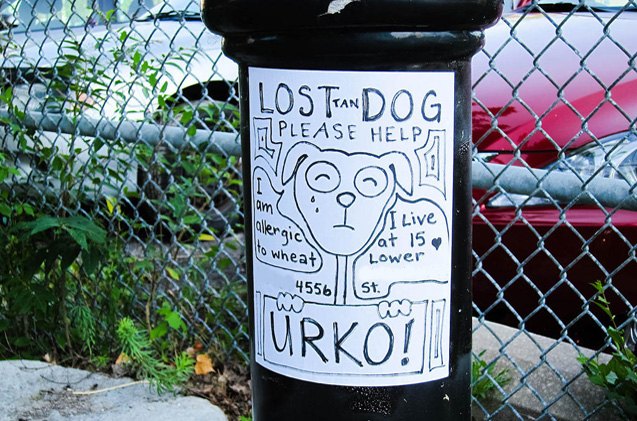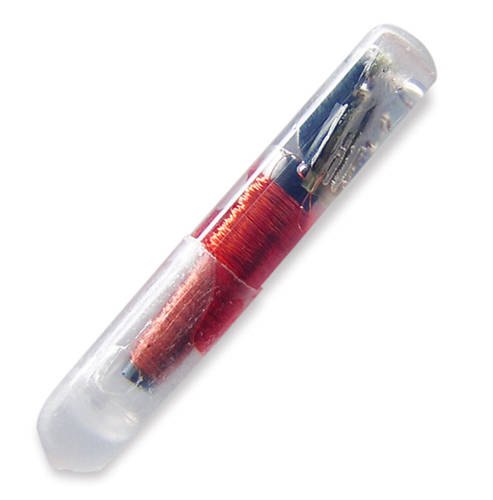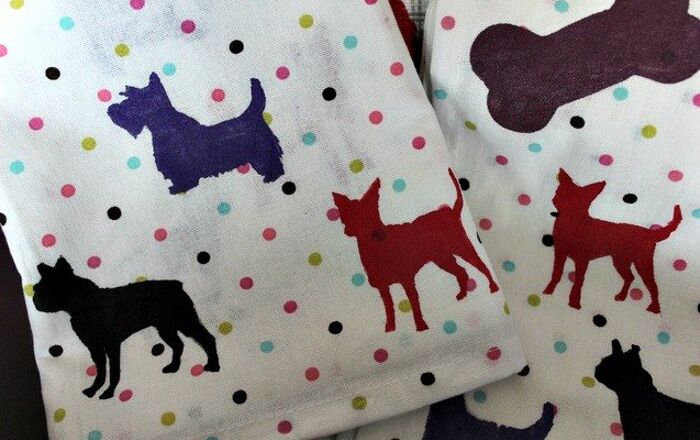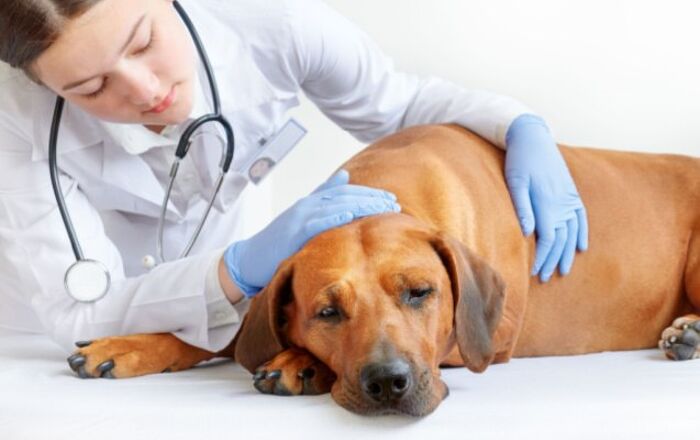
If your pup wanders off, a dog microchip can bring him home safe to you
Every year, millions of pets end up in shelters, and over half of those are put down. In fact, 1 in 3 pets will get lost at some point in their lives. The ASPCA reports that 33 percent of pet owners admit their pets always have ID tags on them. It’s heartbreaking to know that many don’t make it back to their owners. While some owners equip their dog with tag on his collar, that might not be enough – they can be damaged or fall off. For identification that will stick with your pooch no matter what, you should think about a dog microchip.

A dog microchip is tiny – about the size of a grain of rice. But don’t let its size fool you. It contains all the information your dog needs to get home to you, safe and sound. This teeny computer chip is surrounded by glass that is safe to be injected into your dog’s body. A veterinarian implants the chip between your dog’s shoulder blades. And don’t worry – the procedure just takes a minute. It’s like getting a shot and your dog may not even feel it. The dog microchip is read by a handheld device that uses radio waves. It scans the microchip, and is able to display a code that is unique to the dog. My dog is microchipped, and the vet logged in all the contact information. However, you may have to register the information yourself, so check with the vet before you leave the office. This information is stored in a database that is accessible by vets, shelters and rescues, so they can scan your dog and contact you for a happy reunion. If you move, be sure to contact your vet or the registry to change your contact information.
It is rare that complications will arise in a dog microchip procedure. The microchip needs to be implanted by a vet and it’s over in just a few minutes. There are no known side effects of implanting the dog microchip. There have been reports that the dog microchip can move, so it is important to scan a dog’s entire body for the chip. Overall, this is a safe medical procedure that will help keep your dog safe.
Knock on wood that it never happens, but you want to have all the protection you can in the event that your dog goes missing. Tags can be lost, but a dog microchip isn’t going anywhere. It stays in the dog for his entire lifetime and never needs to be replaced. And how much does this peace of mind cost? Anywhere from $25 to $65. If you’re adopting a dog, a microchip may even come included with the adoption fees.
You may be worried about privacy with microchipping, but the truth is that the information you give is only going to be given to the manufacturer of the microchip for their registry in case they need to contact you because your pet has been found as a result of their scan. Don’t worry, most times, you can opt-out of additional communications like ads or newsletters if you want. The only information they maintain in a database when you register your chip is the info you’ve given and give permission to use as you’ve chosen. Random people don’t have access to your info, but vets with scanners WILL and that may be what gets your best friend to come home!
Remember that having the microchip placed is only the first step, and the microchip must be registered in order to give you the best chances of getting your pet back. If that information is missing or incorrect, your chances of getting your pet back are dramatically reduced. It’s probably a great rule of thumb that you update your information with the manufacturer of the microchip every year so that if the worst does happen and your dog does get lost, there’s current info for someone to contact you.
Contrary to some misbelief, they are NOT GPS trackers (though there are dog tags that do act in that capacity). Sometimes people believe that getting your dog microchipped means that your pet is trackable that way but that’s not the case. If your dog is chipped, but no one has YOUR information, your lost dog’s story could be very sad. Update information regularly so that’s not your story.
Microchipping your dog is an important part of dog ownership. In fact, there are countries where it’s the law! It only takes an instant for your dog to become lost – he could slip out of an open door, take off chasing a squirrel or become lost after an unforeseen accident. It’s been proven that microchipping your dog ups the likelihood he’ll be returned to you, so embrace this little chip. The ASPCA says that about 710,000 of the 6.5 MILLION pets who go into shelters every year are returned to their owners. 620,000 of those are dogs and 90,000 are cats. Sadly, fewer than 2% of cats without microchips are returned but if cats DO have microchips (they have much lower rates of microchipping), the return-to-owner rate is 20 times higher! Microchips make a difference and getting one will help to ensure a happy ending for both you and your dog.
Photo credit: n0wak / Foter.com / CC BY-NC-SA














